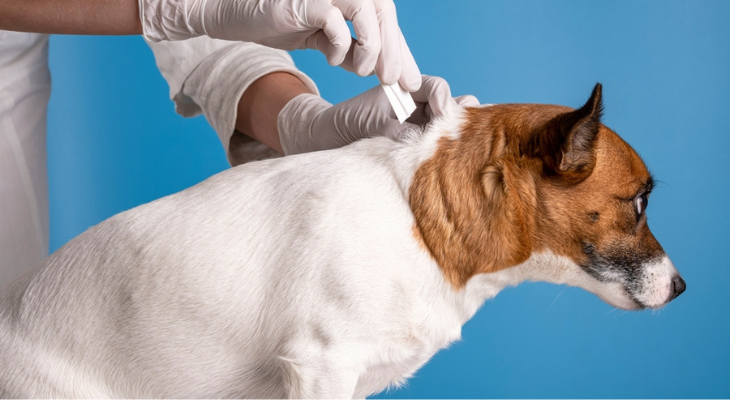🐾 Protecting Your Pet from Heartworm Disease
Heartworm disease is a serious and potentially fatal condition that affects dogs, cats, and ferrets. Prevention is key, as heartworm infestations can cause severe damage to the heart, lungs, and arteries. Is your pet protected? Learn more about how heartworms spread, the dangers they pose, and how you can keep your furry friend safe.
🦟 What Is Heartworm Disease?
Heartworm disease is caused by parasitic worms that mosquitoes transmit to pets when they bite. These microscopic larvae enter the bloodstream and grow into adult heartworms within six months.
🐛 Heartworm Size:
- Males: 5-6 inches
- Females: 10-12 inches
🦴 Heartworm Damage:
- Heartworms live in the heart, lungs, and arteries
- Can lead to severe organ damage if untreated
- Dogs are most affected, but cats and ferrets can also get heartworm
❓ Why Should I Protect My Pet?
A single mosquito bite can infect your pet with multiple heartworm larvae. The average infected dog harbors about 15 adult heartworms, but some may carry hundreds (FDA). Even just a few worms can cause serious health problems for cats and ferrets.
📍 Heartworm Disease Exists in All 50 States, but it’s especially common in:
✔️ Mississippi Delta Region
✔️ Texas, Alabama, Arkansas, Louisiana
✔️ Warmer and humid climates
⚠️ How Heartworm Affects Your Pet’s Health
🩸 Inflammation & Artery Damage – Worms bounce in the pulmonary arteries, causing scarring and stiffness, making it harder for the heart and lungs to function.
🛑 Blockages – Clumps of worms obstruct blood flow and can affect heart valve function (DVM360).
❤️ Congestive Heart Failure – Some pets may develop life-threatening heart disease due to heartworm infections.
😮💨 Breathing Issues – Infected pets may experience coughing, wheezing, and fatigue.
⚖️ Weight Loss & Loss of Appetite – Heartworms steal essential nutrients, causing malnutrition and weakness.
💔 Fatal Consequences – Severe infections can lead to organ failure, collapse, and death. Early detection is crucial as symptoms may not appear until it’s too late.
🛡️ Preventing and Treating Heartworm
The best defense against heartworm is year-round prevention. Prevention is simple, effective, and much safer than treatment.
💊 Heartworm Prevention Options:
✔️ Chewable tablets (given monthly)
✔️ Topical treatments (applied to the skin)
✔️ Injectable medication (protects for 6 months)
📌 Preventative medication kills larvae, but not adult heartworms. If your pet has never used heartworm prevention, your vet must test for heartworm before starting treatment.
⚕️ Heartworm Treatment for Infected Pets
🐶 Dogs – Treatment includes injections to kill heartworms, anti-inflammatories, antibiotics, and strict rest for several months. Surgery may be required in severe cases.
🐱 Cats & Ferrets – There is no approved treatment to kill heartworms. Instead, veterinarians manage symptoms using heart medications, anti-inflammatories, and antibiotics.
🐾 Severely infected pets may need lifelong heart medication.
📅 Is Your Pet Protected?
Prevention is the best way to safeguard your pet’s health! Don’t wait until it’s too late. We can recommend the best heartworm preventative for your pet’s size, age, and lifestyle. Contact our office today to schedule an appointment!
📖 References
📌 Cornell Richard P. Riney Canine Health Center – Heartworm Disease
📌 DVM360 – Pictorial Evidence: Heartworm Disease and Its Damage (April 20, 2015)
📌 American Heartworm Society – Heartworm Basics
📌 American Veterinary Medical Association (AVMA) – Heartworm Disease
📌 U.S. Food and Drug Administration (FDA) – Keep the Worms Out of Your Pet’s Heart!
📌 American Heartworm Society – Heartworm Incidence Map Shows Increasing Cases (April 11, 2023)







